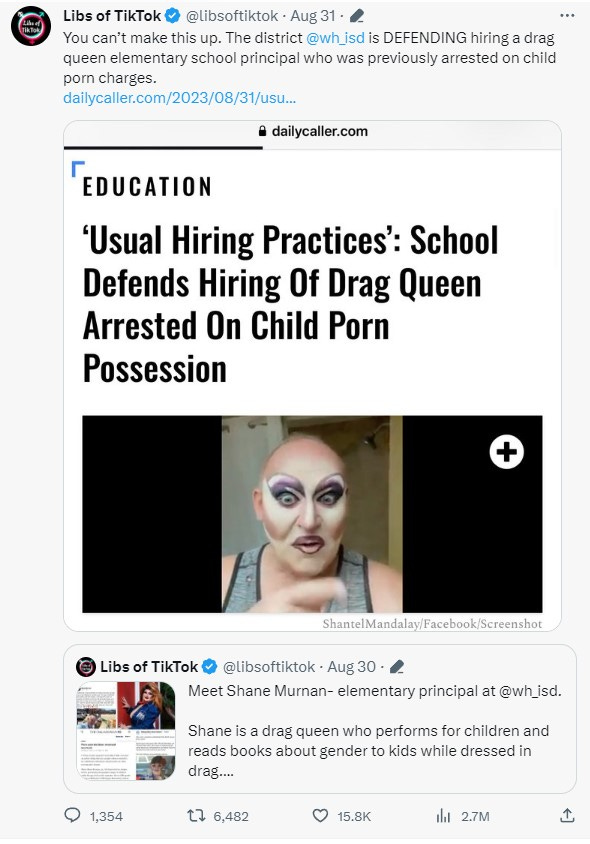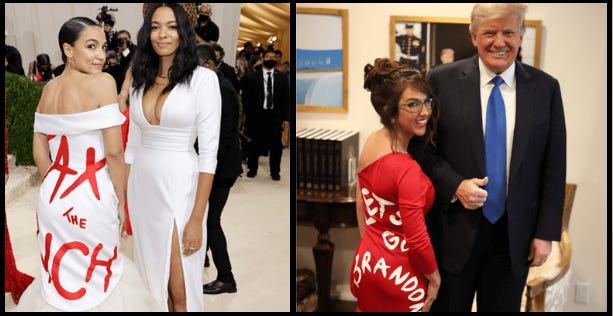America used to be a much more professionalized society. There were more formalized standards of behavior and people felt a lot of societal pressure to adhere to them. For example, have you ever seen those old-colorized videos of say, New York in the 1930s?
People certainly don’t dress like that today. In fact, our style of dress has gotten so lax that there has been a ferocious debate over whether the dress code in the Senate should be changed so that John Fetterman can wear shorts and a hoodie on the Senate floor:
Of course, many people would say, “What difference does it make?” Quite a lot actually. How people dress is an important signal about how they can be expected to behave.
Just to give you an example, imagine you’re in a sketchy neighborhood and no one is around. You go up to an ATM and suddenly, two young males walk up behind you. How they’re dressed matters a great deal.
If it’s black kids with baggy pants, face tats, and NBA jerseys, if you have half a brain, you’re going to be watching them out of the corner of your eye and figuring out how you’re going to handle it if things turn ugly. On the other hand, if it’s young, black guys wearing suits, you may even breathe a sigh of relief that they’re around since it’s a sketchy neighborhood.
In other words, it’s notable that for all the debate we have about race in our society, how someone dresses is actually a more powerful signal about how they’re expected to behave than race.
Like saying “sir” and “ma’am,” engaging in chivalry, or having manners, how people dress tells you what to expect from them. The same goes for multi-colored hair and tattoos. If a bouncer, musician, or stripper has strands of green hair or visible tattoos on their neck and hands, no one bats an eye. If your doctor or banker walks in looking that way, if you’re smart, the first thing you’re going to do is start looking for a new doctor or banker.
Although there are certain limited exceptions, this is not irrational behavior. As fashion guru Tanner Guzy said in his book, The Appearance of Power: How Masculinity is Expressed Through Aesthetics:
But a man’s appearance has been an integral part of humanity since before the dawn of civilization. As human beings, we use mental shortcuts when assessing our surroundings and the people within them. It is inefficient and dangerous to treat every object, scenario, and person as a blank slate or an unknown.
And, because it is our tendency to judge according to visual stimuli, we use physicality, body language, grooming, and clothing to quickly and effectively communicate who we are and how we want other people to perceive us.
Some men dress to appear more physically threatening, others to convey status and power within social spheres, some attempt to fit in and not draw attention to themselves, and others will use their clothing to show their disdain for the social norms around them.
Regardless of what your intentions are, your clothing says something about you. And no, this doesn’t just apply to you, but to every man who has ever interacted with another human being. From the ancient shaman to the Wall Street banker, the Pope to the gutter punk, all men use clothing and appearance to tell the world who we are. Which means it’s worthwhile for you to understand how to use this tool effectively.
Of course, clothing is only a piece of professionalism.
Professionalism also includes handling things in a non-emotional, businesslike manner, being appropriate, not mixing business issues with personal issues or politics, showing up on time, keeping your promises, being reliable, sticking to rules, and fulfilling expectations.
Theoretically, at least, these traits don’t have to be related, but as a practical matter, they generally are. When you see a breakdown in one area of professionalism, you tend to see it in a lot of areas.
This is why, for example, when you see these kinds of stories coming out of a military that is increasingly focusing on climate change, trans issues, and Critical Race Theory instead of getting prepared to “kill people and break things,” it’s not a surprise that our military showed historic levels of incompetence as it pulled out of Afghanistan in 2021. As our military’s level of professionalism degrades, so will its performance.
We have seen something similar happen with teachers. If you have followed Libs of TikTok on Twitter, you will notice that they semi-regularly feature weird-looking teachers pushing bizarre and inappropriate ideas in their classrooms:
These people are the living embodiment of the meme you’ve probably seen floating around:
You can literally just look at these teachers and see they don’t belong around kids because if you hire unprofessional people, you should expect them to do unprofessional things.
How about our politicians? Do you really think we’re going to take women who wear messages on their shapely behinds to get attention, put them in office, and they’re suddenly going to turn into stateswomen and real leaders? The world doesn’t work that way. Unprofessional people don’t suddenly become professional when they get power, their erratic behavior just continues on to a bigger stage:
When businesses started catering to their unprofessional employees, we ended up with story after story that featured pouting, childlike ultra-leftists demanding that corporations cater to their political beliefs instead of serving their customers and making a profit. Rather famously, Netflix got into a drawn-out battle with a number of its employees who were demanding they not run a wildly popular Dave Chappelle special that had some fairly gentle jokes about trans people in it:
Eventually, even Netflix, which is a famously woke company, had to crack down:
Last week, Netflix issued a long memo detailing the company culture it hopes to foster: The streaming service lays out that it produces a variety of content and won’t allow its employees to cut programming.
Netflix lets “viewers decide what’s appropriate for them, versus having Netflix censor specific artists or voices.”
And if the employee doesn’t like it, there’s the door. “Depending on your role, you may need to work on titles you perceive to be harmful. If you’d find it hard to support our content breadth, Netflix may not be the best place for you.” Netflix employees famously protested Dave Chappelle’s stand-up comedy special last year.
This is what happens when you don’t have professional standards for your employees. Eventually, you either have to start establishing some order, or the inmates end up running the asylum.
We could go on and on with this, but the point is that professionalism matters. That doesn’t mean “professionals” don’t screw up or that everyone has to wear a suit. What it does mean is that it’s okay to have standards and reject people for certain jobs and positions if they don’t meet those standards.
The more professionalism people in our society have, the better the country will run. That’s because professionalism is a bulwark against chaos. It helps cement in order, good behavior, standards, and competency. The more we abandon those standards for, “Everyone should do their own thing, man,” the more this country will decline and degrade.











It's okay to judge. It really is.